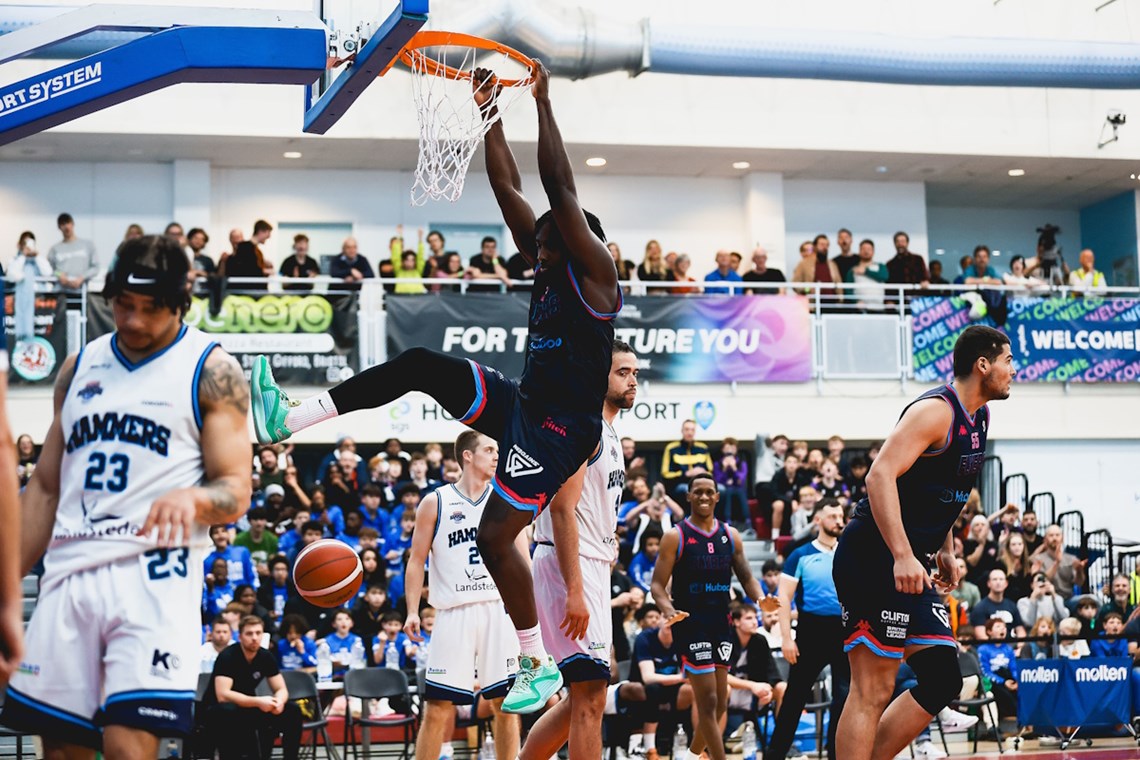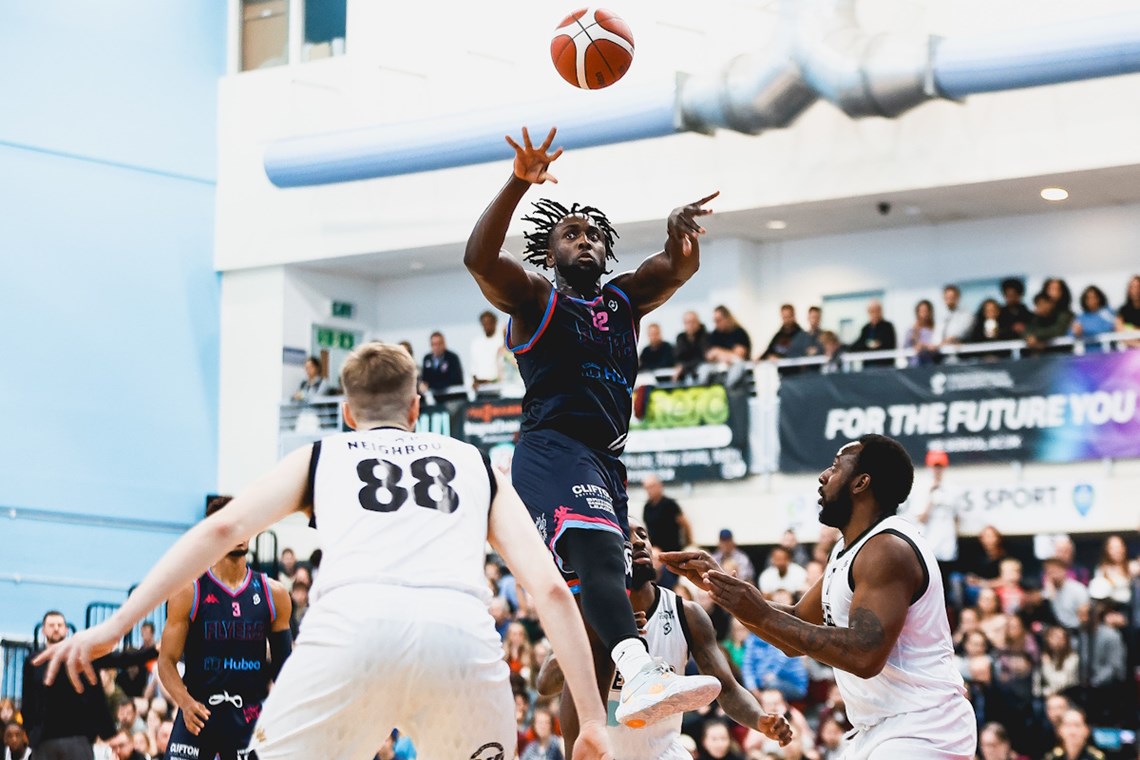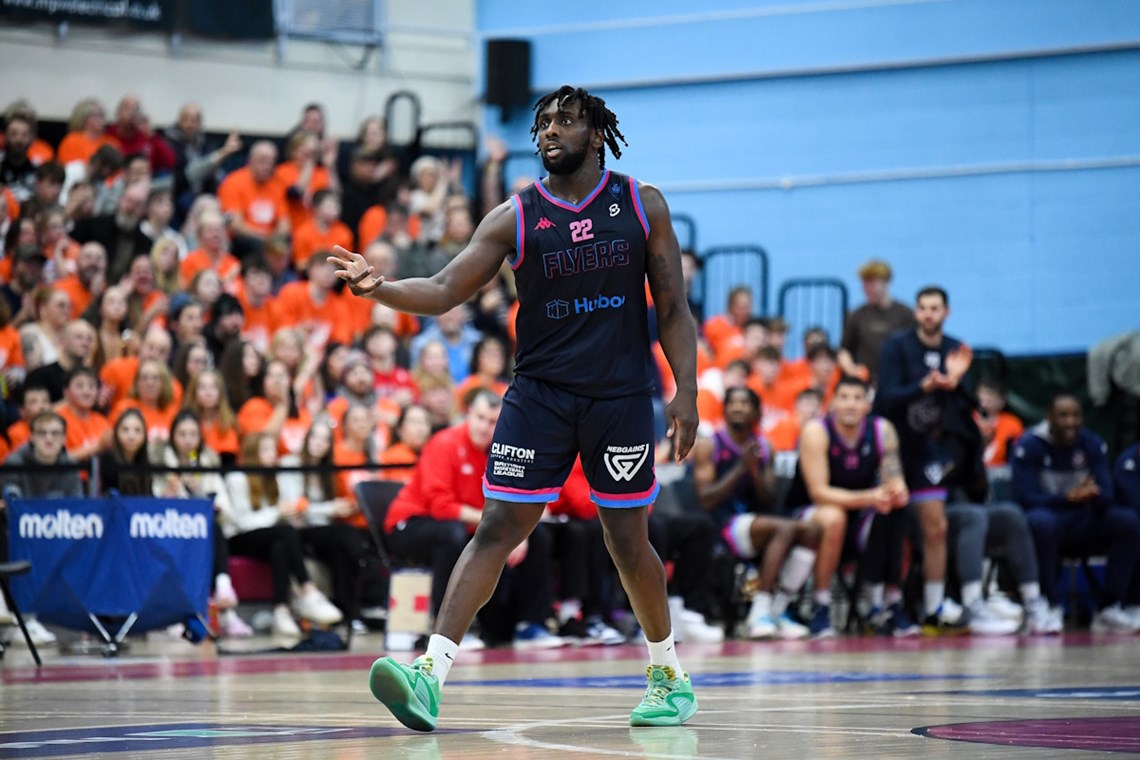
“You have to find ways to keep yourself accountable,” said the 29-year-old, who dislocated his ankle against the Manchester Giants in January this year. “And that starts with the structure around you, whether that’s family and friends checking in [on you] or taking the time to know everything you can about your injury.
“Discipline comes into it when you focus on rehab and building your muscles and body stronger. And you also have to find a way to accept what has happened. That is either accepting it and saying ‘you're done’, you call it quits, or you say, ‘let's figure out a way to make sure this never happens again’.”

The injury, which happened in the fourth quarter of a pedestrian second round BBL Trophy encounter against the Giants (the Flyers won 105-80), stopped play and Graham-Bell was blue-lighted to Manchester Royal Infirmary to receive treatment.
“It was a freak accident. I remember, we went for a transition block, but this time, my teammate jumped in the air too, trying to contest [the ball] and did a great job of it.
“I was already in the air and there was no space to land. And I just remember looking down and seeing no ground space. And it was just, left foot [landed] okay, and then the right foot just did its own thing.”
He told Basketball England that he wants young hoopers, especially those who have one-eye on turning pro, that all is not lost when you pick up an injury if you keep focused and keep things in perspective.
“If you can’t take things with a pinch of salt and maybe a little bit of pepper, you are done for,” laughed the Londoner.
“That's why I had so many people, and I appreciate all of them, messaging me and calling me, telling me that I wasn’t done. From their perspective, they had seen me come back from injuries before and still play and dunk like nothing ever happened.
“I think that comes down to my mentality and being able to laugh off the bad. I did that, and probably would do it again if something worse was to happen. I think it’s about having that perspective that there is always someone in a way worse situation than you.”

Currently, Graham-Bell is in a cast and waiting for the all clear from his MRI scans to begin his rehab proper. That doesn’t mean his training has stopped, however. He’s on the static bike every day, keeping an eye on his calories and hitting the gym to keep his strength and muscle memory.
He sees injuries as part and parcel of the life of an athlete and knows the drill, having been here before with an Achillies rupture whilst playing for Erfurt in Germany and receiving ACL (anterior cruciate ligament) surgery during his tenure at the Eagles.
His view is he would never let a new injury undo the work and rehabilitation done to recover from another.
“It's not affected me [mentally] as much as [it might affect others], but that comes from the history of past injuries.
“The best way to break it down is when you've gone through enough injuries, you're mentally prepared for it and you are battle tested.
“I studied to do a level three [personal training certificate] mainly because I wanted to have a deeper understanding of what my body's doing, and how I can understand how to mitigate risk.
“When you have an injury, you can't rely on people around you [all the time] to make you feel like everything's okay. You need to have that self-belief and I did that by giving myself tasks to do.
“I would just watch as many self-help videos, interviews, books, whatever I could to take on knowledge [about my body] and help me persevere out of the situation.”

Basketball England's Head of Physiotherapy and Sports Science Andy Howse says that injuries like Graham-Bell’s can put a strain on the mentality of any player, but having a strong support network around you, as well as goal setting, can be key to getting though any injury period.
“We ask players to make small goals to work through, as they move through the timeline of recovery,” said Howse. “Writing them down and ticking them off is a perfect way to do this.
"We also encourage players to discuss with their coaches what things they need to improve on. Injury doesn’t mean you can’t improve other areas of your game.
“It’s not all doom and gloom. Most players will return to the court better and stronger after a period of injury, as they have a chance to get stronger, improve their individual skills and hone weaknesses, and game awareness whilst not being able to play.”
.
.
.
All images supplied by the British Basketball League/Bristol Flyers
